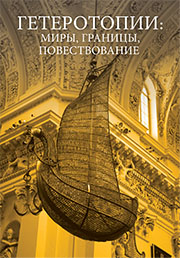Гетеротопии Вильнюса в современном литовском романе: панорама как пространство неповседневности
Vilnius’ Heterotopias in Modern Lithuanian Novel: Panorama as the Space of Not-Everyday Life
Author(s): Julija SnežkoSubject(s): Recent History (1900 till today), Lithuanian Literature, Theory of Literature
Published by: Vilniaus Universiteto Leidykla
Summary/Abstract: In this article the heterogeneity of the space of Vilnius in three Lithuanian modern novels – Jurgis Kunčinas’ Tūla (1993), Ričardas Gavelis’ Vilnius’ Poker (1989) and Antanas Ramonas’ White Clouds of the Last Summer (1991) – is discussed. It is analysed in two aspects: through the relation of “personal” topography of the main heroes to the space of the dominant discourse of power (Soviet power) and – what is of special importance in this article – through the analysis of the ways the heroes perceive the city that depend on their position in its space. The author comes to conclusion that horizontal plane of the city corresponds to the flow of everyday life where the heroes try to create and fix their “own” space in certain ways that conflict in one way or another with the dominant discourse of power, while the panoramic points of view serve as the places where they can free themselves from the “clutches” of the city. However these points don’t function as the places of realisation of their “will to power” as regards the city. Instead they reveal its materiality (forms, texture). It may be said that in these novels the panoramic points of view function as “other” space, the space of not-daily life, or as heterotopias in relation to horizontal plane. Thus they can be treated as peculiar points of armistice where at least for a while rival narratives about Vilnius are suspended and the music of the city is heard.
Journal: Literatūra
- Issue Year: 57/2015
- Issue No: 5
- Page Range: 255-265
- Page Count: 11
- Language: Russian

